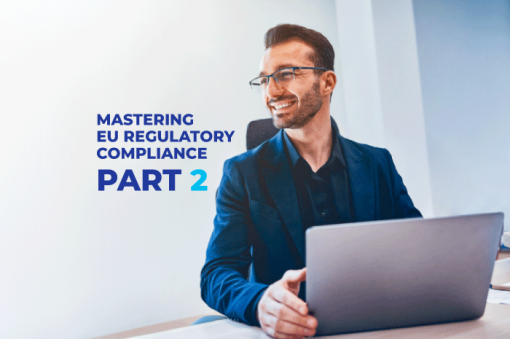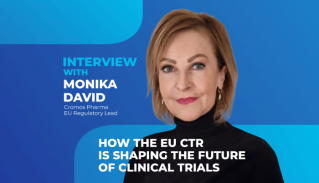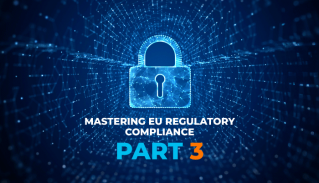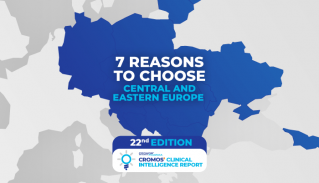
GDPR Essentials: What You Need to Know About Appointing a Data Protection Officer
Key Takeaways:
- DPO Role is Critical for Data Compliance: Appointing a DPO ensures that companies meet GDPR regulations, particularly for large-scale data processing.
- Key Responsibilities: The DPO advises the organization, monitors compliance, and manages risks related to data protection.
- Flexibility in Appointments: Companies may share a DPO or hire one part-time, depending on their size and needs, making it adaptable for both large and small organizations.
For biotech companies and drug developers aiming to enter the European market under the European Medicines Agency (EMA), complying with EU regulations is vital. Managing roles like Legal Representatives (LR), Data Protection Officers (DPO), and Data Protection Representatives (DPR) can be challenging, but they are essential for regulatory and data protection compliance, particularly in clinical trials and product approvals.
In our previous issue, we covered the role of the Legal Representative. Now, we’ll continue by diving into GDPR essentials, starting with the DPO.
Must-Know GDPR Tips: Everything You Need to Know About Data Protection Officer
For companies operating in Europe, appointing a Data Protection Officer (DPO) is a critical requirement under the General Data Protection Regulation (GDPR). This role is essential for ensuring compliance with data protection laws, especially for organizations that handle large volumes of personal data or sensitive information. A DPO acts as the organization’s primary point of contact for data protection matters, safeguarding privacy and ensuring that all processes align with legal standards. Without a qualified DPO, companies risk non-compliance, which can result in severe penalties and reputational damage.
When is a DPO Required?
Organizations that process personal data of EU residents must ensure GDPR compliance, but appointing a DPO is mandatory only in specific cases:
- Large-scale Data Monitoring: The core activities of the organization involve large-scale, regular, and systematic monitoring of individuals.
- Large-scale Processing of Special Data: The organization processes large amounts of special data categories, such as health records or criminal convictions.
The definition of “large-scale” processing can be vague, but typically refers to the volume of data, the number of data subjects involved, the duration of the data processing, and the geographical scope of operations.
What is the GDPR and Why Does It Require a DPO?
The GDPR aims to protect the privacy and personal data of individuals in the EU. Under this regulation, organizations that process personal data must ensure that their practices meet legal and ethical standards. One key way to ensure this is by appointing a DPO. The DPO acts as the focal point for all data protection matters within an organization and ensures compliance with GDPR requirements.
Responsibilities of a DPO
According to Articles 38 and 39 of the GDPR, the DPO’s duties are extensive and include:
- Advising the organization on GDPR compliance: The DPO educates and informs the organization and its employees about their obligations under GDPR.
- Monitoring compliance: The DPO conducts regular audits, provides staff training, and ensures all personal data handling complies with the GDPR.
- Risk management: The DPO is responsible for carrying out data protection impact assessments and identifying potential risks related to data processing.
- Liaising with supervisory authorities: The DPO acts as the point of contact between the organization and the national data protection authorities, ensuring a clear communication line for any issues.
- Responding to data subjects’ requests: The DPO addresses inquiries and concerns from individuals regarding their personal data and how it is processed.
Skills Required for a DPO
The GDPR does not set out specific qualifications for a DPO but indicates that the DPO must have “expert knowledge of data protection law and practices.” Organizations should seek candidates with:
- Strong knowledge of EU and global privacy laws
- Expertise in information security standards and data privacy technologies
- Experience in conducting data protection impact assessments and audits
- Ability to communicate effectively with both executives and entry-level staff
- Independence and a proactive approach to staying updated on new developments in data privacy
Does Every Organization Need a Full-Time DPO?
For smaller organizations, hiring a full-time DPO may not be feasible. In such cases, the GDPR allows for the sharing of a DPO across multiple organizations, provided the DPO is easily accessible and able to perform their duties effectively. On the other hand, large organizations may need to support the DPO with additional staff to manage the workload.
Recruiting a DPO
When hiring a DPO, organizations can either recruit internally, especially from departments like IT or legal, or search externally for a qualified candidate. Given the high demand for skilled DPOs, many organizations face challenges in finding the right talent. Managed recruitment services and specialized certifications in GDPR compliance, offered by organizations such as the International Association of Privacy Professionals (IAPP), can help identify suitable candidates.
Conclusion
A DPO is an integral part of an organization’s GDPR compliance framework. Whether mandated or voluntary, appointing a DPO can significantly reduce the risk of GDPR violations and ensure that an organization remains committed to data protection best practices.
References:
- European Medicines Agency (EMA). “Clinical Trials Regulation (EU No 536/2014).”
- General Data Protection Regulation (GDPR) (EU) 2016/679.
- European Commission. “Guidance on the Appointment of Data Protection Officers.”
- European Data Protection Board (EDPB). “Roles and Responsibilities under GDPR.”






























